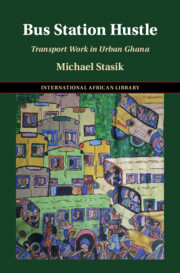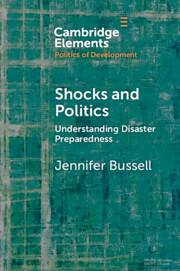989 results
22 - The Papacy and the Decolonization of Africa
- from Part IV - Theopolitics and Religious Diplomacy
-
-
- Book:
- The Cambridge History of the Papacy
- Published online:
- 28 February 2025
- Print publication:
- 20 March 2025, pp 570-596
-
- Chapter
- Export citation
14 - The WTO Facilitation Framework without Africa
- from Part III - Regional Perspectives of Investment Facilitation Rule-Making
-
-
- Book:
- The Making of an International Investment Facilitation Framework
- Published online:
- 13 March 2025
- Print publication:
- 20 March 2025, pp 364-388
-
- Chapter
-
- You have access
- Open access
- HTML
- Export citation
Africa and China's 21st Century Maritime Silk Road
-
- Journal:
- Asia-Pacific Journal / Volume 13 / Issue 11 / March 2015
- Published online by Cambridge University Press:
- 14 March 2025, e1
-
- Article
- Export citation
The New ‘Heart of Darkness’: Exploring Images of Africa in Wolf Warrior 2 (2017)
-
- Journal:
- Asia-Pacific Journal / Volume 17 / Issue 4 / February 2019
- Published online by Cambridge University Press:
- 14 March 2025, e2
-
- Article
- Export citation
The association between 25-hydroxyvitamin D and parathyroid hormone in adolescents living with HIV in southern Africa: a cross sectional study
-
- Journal:
- British Journal of Nutrition / Accepted manuscript
- Published online by Cambridge University Press:
- 13 March 2025, pp. 1-33
-
- Article
-
- You have access
- Export citation
Case Study 2.1 - Africa’s Tech Challenge
- from Section 2 - Compliance
-
-
- Book:
- A Casebook on Chinese Outbound Investment
- Published online:
- 28 February 2025
- Print publication:
- 06 March 2025, pp 67-87
-
- Chapter
-
- You have access
- Open access
- HTML
- Export citation
Impact of co-morbid common mental disorder symptoms in people with epilepsy in Ethiopia on quality of life and functional disability: a cohort study
-
- Journal:
- Cambridge Prisms: Global Mental Health / Volume 12 / 2025
- Published online by Cambridge University Press:
- 26 February 2025, e33
-
- Article
-
- You have access
- Open access
- HTML
- Export citation
Addressing the mental health needs of healthcare professionals in Africa: a scoping review of workplace interventions
-
- Journal:
- Cambridge Prisms: Global Mental Health / Volume 12 / 2025
- Published online by Cambridge University Press:
- 26 February 2025, e31
-
- Article
-
- You have access
- Open access
- HTML
- Export citation
China’s evolving security engagement in Africa: Policies, strategies, and implications
-
- Journal:
- European Journal of International Security , First View
- Published online by Cambridge University Press:
- 21 February 2025, pp. 1-18
-
- Article
-
- You have access
- Open access
- HTML
- Export citation
Colonial Mapmaking, Ethnic Identity, and Traditional Authority in Africa
-
- Journal:
- British Journal of Political Science / Volume 55 / 2025
- Published online by Cambridge University Press:
- 21 February 2025, e28
-
- Article
-
- You have access
- Open access
- HTML
- Export citation
15 - Utility Models in Kenya
- from Part I - Utility Model Laws and Practices around the World
-
-
- Book:
- Sub-patent Innovation Rights
- Published online:
- 06 February 2025
- Print publication:
- 13 February 2025, pp 255-261
-
- Chapter
-
- You have access
- Open access
- HTML
- Export citation
Supplemental description of Stephanoprora ornata Odhner, 1902 (Digenea: Echinochasmidae) infecting the Nile crocodile, Crocodylus niloticus (Crocodylidae) from Namibia with emendation of Mesorchis Dietz, 1909 and a phylogenetic analysis
-
- Journal:
- Journal of Helminthology / Volume 99 / 2025
- Published online by Cambridge University Press:
- 10 February 2025, e20
-
- Article
-
- You have access
- Open access
- HTML
- Export citation

Bus Station Hustle
- Transport Work in Urban Ghana
-
- Published online:
- 09 February 2025
- Print publication:
- 13 February 2025
-
- Book
-
- You have access
- Open access
- Export citation

Shocks and Politics
- Understanding Disaster Preparedness
-
- Published online:
- 06 February 2025
- Print publication:
- 06 February 2025
-
- Element
- Export citation
What Determines the Duration of Protest Events? Evidence from Africa
-
- Journal:
- Government and Opposition , First View
- Published online by Cambridge University Press:
- 30 January 2025, pp. 1-27
-
- Article
-
- You have access
- Open access
- HTML
- Export citation
12 - Disinformation and Democracy in Africa and South Africa
- from Part IV - National Approaches to Disinformation
-
-
- Book:
- Disinformation, Misinformation, and Democracy
- Published online:
- 09 January 2025
- Print publication:
- 23 January 2025, pp 270-310
-
- Chapter
-
- You have access
- Open access
- HTML
- Export citation
Acta Neuropsychiatrica embraces full open access: towards a new era of global knowledge sharing
-
- Journal:
- Acta Neuropsychiatrica / Volume 37 / 2025
- Published online by Cambridge University Press:
- 21 January 2025, e2
-
- Article
-
- You have access
- Open access
- HTML
- Export citation
Rules of Origin, Value Chains and African Development under the African Continental Free Trade Area Agreement
-
- Journal:
- Journal of African Law , First View
- Published online by Cambridge University Press:
- 20 January 2025, pp. 1-17
-
- Article
- Export citation
Chapter 9 - Finding the Lost
-
-
- Book:
- Nineteenth-Century Literature in Transition: The 1850s
- Published online:
- 02 January 2025
- Print publication:
- 16 January 2025, pp 201-224
-
- Chapter
- Export citation
8 - International Peace
- from Part III - Implications for Academics and Policymakers
-
- Book:
- Local Peace, International Builders
- Published online:
- 02 January 2025
- Print publication:
- 16 January 2025, pp 169-176
-
- Chapter
-
- You have access
- Open access
- Export citation


